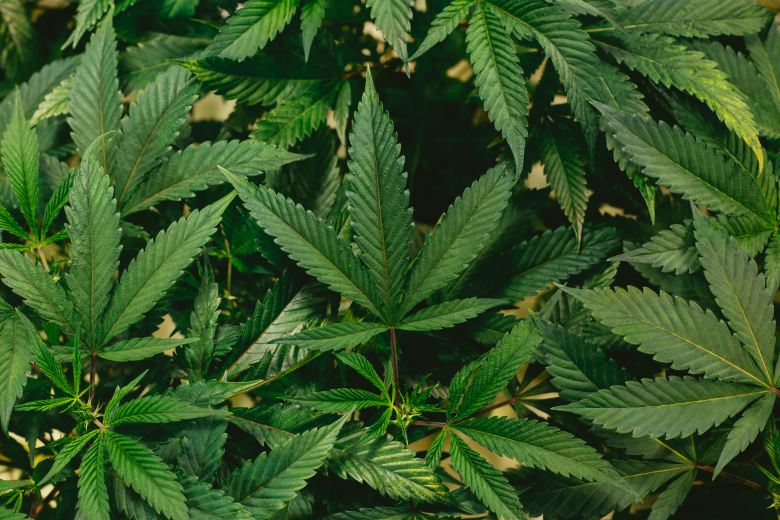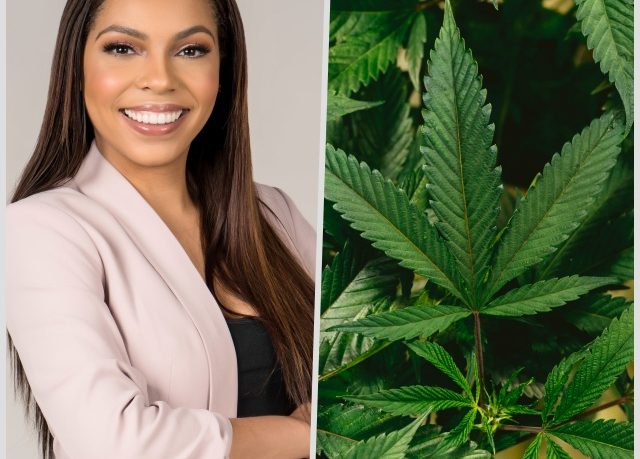By Megan Sayles,
AFRO Business Writer,
msayles@afro.com
In 2022, Marylanders voted to pass a referendum on cannabis use for individuals 21 years and older. Recreational use of the drug started on July 1. On that day, state dispensaries racked up more than $3.5 million in adult-use sales, according to a Maryland Cannabis Administration (MCA) report.
Over the course of the entire weekend, Maryland dispensaries earned $10.4 million for adult-use and medical sales, compared to $3.9 million in 2022 when only medical use was permitted. From July 1 to July 7, Maryland dispensaries grossed $20.9 million in medical and adult-use cannabis sales, according to an MCA report.
Hope Wiseman is the founder and owner of Mary and Main, a cannabis dispensary in Capitol Heights, Md. Wiseman became the youngest woman to operate a medical dispensary when she opened the facility in 2018. (Photo courtesy of Hope Wiseman)
“Of course every state that goes from medical to adult use definitely experiences an increase, and in Maryland, the [industry]pretty much did what was predicted,” said Hope Wiseman, founder and owner of Mary and Main dispensary in Capitol Heights, Md. “We saw about three times the sales that we normally experience, and it’s been pretty consistent since July 1.”
At the age of 25, Wiseman became the youngest Black woman to own a cannabis dispensary in the U.S. when she opened Mary and Main as a medical dispensary alongside her mother, Octavia Wiseman, in 2018. The facility operates in her Prince George’s County hometown.
Before adult-use was legalized, the state of Maryland provided a pathway for existing medical dispensaries to convert their licenses for dual sales under the Cannabis Reform Act. The facilities were required to pay a fee equivalent to eight percent of the previous year’s gross revenue for the conversion.
“Opening weekend we had lines going around the store. It was pouring down raining, and people got umbrellas out and stood in line,” said Wiseman. “It was really amazing to see.”
Under the Cannabis Reform Act, marijuana users are allowed to purchase up to 1.5 ounces of cannabis flower, including joints and pre-rolls, 12 grams of concentrated cannabis or a total amount of edible cannabis products that do not surpass 750 milligrams of THC, according to the Maryland Cannabis Administration.
Because cannabis is illegal under federal law, individuals are not permitted to carry the drug over state lines. Mailing cannabis in or out of the state is also prohibited.
Maryland is also the first state in the nation to exclusively target social equity applicants for dispensary licenses, according to the Maryland Cannabis Administration. Under the Cannabis Reform Act, the state will have specific licensing rounds for applicants from communities that have been disproportionately affected by marijuana prohibition and prosecution.
It will also provide grants and no-interest loans to individuals who qualify as social equity applicants. Thirty percent of the tax revenue generated from adult-use sales will be diverted to the Community Reinvestment and Repair Fund, which benefits communities that have been most affected by war on drugs.
 Recreational use of cannabis became legal on July 1 in the state of Maryland. During that weekend, adult-use and medical sales totaled $10.4 million. (Photo by Jeff W on Unsplash)
Recreational use of cannabis became legal on July 1 in the state of Maryland. During that weekend, adult-use and medical sales totaled $10.4 million. (Photo by Jeff W on Unsplash)
“When the first round of medical licenses came out in 2013, social equity wasn’t even a part of the conversation. This time around, it was at the forefront of the conversation,” said Wiseman. “Potentially, we might be able to have one of the most successful social equity programs to date.”
Since adult-use became legal, Maryland law enforcement have altered their policies and procedures and received training to detect cannabis intoxication in drivers.
The Baltimore City Police Department defines a criminal amount of cannabis as more than 2.5 ounces of flower, more than 20 grams of concentrated cannabis or more than 1,250 milligrams of cannabis products containing THC. According to the department, police must try to issue a criminal citation before making any arrest for criminal cannabis possession.
Police are also prohibited from relying on odor to initiate a stop and search of a person or vehicle, according to the department.
“All of our policies are done in collaboration with the U.S. Department of Justice, our Consent Decree Monitoring Team and our public feedback process,” said Lindsey Eldridge, director of public affairs and community outreach for the Baltimore Police Department (BPD). “Additionally, BPD has five drug recognition experts (DREs), every sworn member receives a 40-hour training course on controlled dangerous substances.”
The department said that, so far, no information is available on whether any marijuana-related arrests have been made since July 1 since data is collected per calendar month. However, the department intends to analyze calls and arrests related to the drug after the month is over.
In the future, Wiseman said she plans to open a second dispensary with an entrepreneur in Maryland.
“I don’t want to do it alone. I want to grow with my people,” said Wiseman. “I hope to be able to partner with someone that’s looking to get into the space and to offer them security since they will have somebody working with them that’s done it before.”
Megan Sayles is a Report for America Corps member.
Related Articles:



